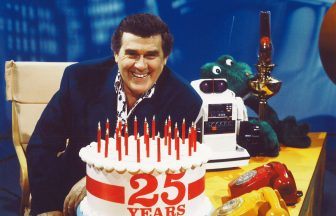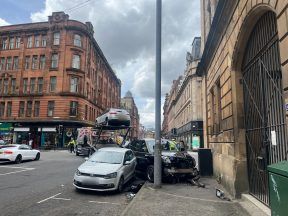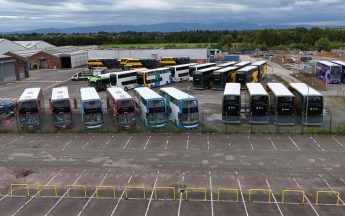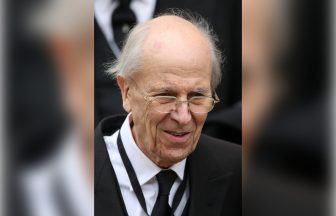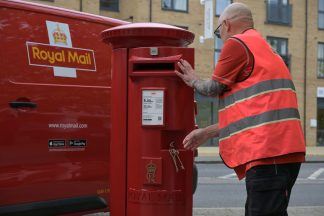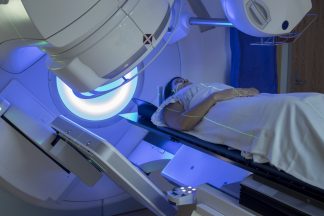First Minister Humza Yousaf is set to outline his desired route to achieving a constitutional vote for a second independence referendum.
He will take to the stage at the SNP’s independence convention in Dundee on Saturday.
SNP members gathering on Tayside all agree on the destination – an independent Scotland – and the convention will feature discussions on how they hope to achieve that ambition.
The route to independence has been blocked by the UK Government’s repeated refusal to grant a referendum and the Supreme Court ruled last year that Holyrood doesn’t have the power to hold a legally-binding vote.
Nicola Sturgeon’s resignation as first minister in February delayed the convention, as well as casting doubt over her strategy of treating the next UK General Election as a de-facto referendum.
Yousaf has distanced himself from that approach and will set out his preferred route – along with other senior party figures – in Dundee.
Earlier this week, Yousaf said he believes he will be the First Minister to lead Scotland to independence from the United Kingdom.
He was speaking after launching the fourth Building a New Scotland prospectus covering constitutional matters in the event of a pro-independence vote.
Under that blueprint, the country would retain King Charles III as head of state – as long as there was “a desire to do so” from the Scottish electorate.
A new written constitution, voted on in another referendum, would also be enshrined in law, as would a commitment to keeping the NHS free at the point of use and a “duty” to outlaw nuclear weapons such as Trident.
Yousaf said the the sole focus of SNP members at the convention will be on plotting a route to a new ballot following the UK Government’s imposition of a section 30 order to block any vote.
But he would not be drawn on an exact timescale for that to take place.
Yousaf said: “I genuinely believe I will be the leader to deliver independence for Scotland, I wouldn’t have put myself forward for the leadership if I didn’t think I could.
“I don’t have a timescale, I believe it will be within my leadership, not just through my actions, but through popular support because it is popular support that will break the logjam created by Westminster denial.”
Meanwhile, the SNP’s Westminster leader Stephen Flynn says the party will use the upcoming general election to “secure independence” amid rising interest rates.
It comes as the Bank of England raised interest rates on Thursday to 5%, up from 4.5% and the 13th increase in a row.
Flynn said: “Independence will be at the centre of the SNP’s election campaign – it is the essential key to securing prosperity and escaping the Westminster-made cost of living crisis.
“Millions of people are seeing their incomes hammered because of Brexit, Tory cuts and other damaging decisions imposed by Westminster against Scotland’s will – with mortgages, food prices and energy bills soaring.
“The SNP is the only party offering real change with independence. It’s the only route back to the EU and only with the full powers of independence can Scotland achieve our full potential.”
He added that an independent Scotland would “regain our place in Europe” and reinvest energy wealth into communities.
A UK Government spokesperson said: “People in Scotland want both their governments to be concentrating on the issues that matter most to them, like growing our economy, halving inflation and improving public services.
“We want to work constructively with the Scottish Government to tackle our shared challenges because that is what families and businesses in Scotland expect.
“This is not the time to be talking about distracting constitutional change.”
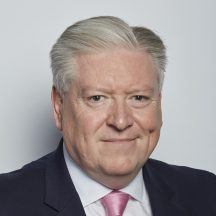
Insight Bernard Ponsonby Special Correspondent
No one that I have spoken to of late in the SNP thinks that an independence referendum is even remotely on the horizon. Indeed, many now privately fear that if the post Sturgeon era is defined by electoral regression, independence is, to borrow a phrase, off the agenda for a generation.
During the recent leadership election to succeed Sturgeon, the current party leader was keen to stress that building sustained support for independence was essential if the ‘big idea’ was ever to become a reality.
The clear implication of Humza Yousaf’s comments seemed to implicitly reject the idea of a ‘de facto referendum’, the strategy embraced by Nicola Sturgeon when she ran out of road and had nowhere left to go when asked, how do you deliver independence?
Sturgeon’s political touch deserted her in the latter part of her leadership. The decision to refer the issue of a Holyrood-inspired consultative referendum to the Supreme Court merely bolstered the position of her opponents and put any theoretical constitutional strategy beyond debate at least as far as legality is concerned.
And yet, in a breathless press release, SNP deputy leader Keith Brown tells us that an independence convention to be held in Dundee on June 24 ‘will be solely focused on how Scotland is able to hold a legally binding independence referendum’.
Perhaps Brown missed the Supreme Court judgement. The legal route to an independence referendum is for Westminster to consent to it. There is no other legal route, so what is the point of this convention?
And just when the ‘de facto’ referendum line seemed to disappear with the demise of Nicola Sturgeon, the minister in charge of independence Jamie Hepburn decided yesterday to breathe fresh life into it by insisting it is still on the table.
The crude fact is this. The SNP have no strategy for delivering independence and a convention committed to discussing a legally binding plebiscite cannot defeat the principle that Westminster must consent.
The Dundee convention might serve to highlight the weakness of the SNP’s position and indeed might be no more than an exercise in frustrated activists letting off steam at the continued refusal of the UK Government to turn a blind eye to repeated mandates demanding a new poll.
Any system of devolved government which allows one parliament to legally imprison another is clearly not fit for purpose.
A parliament that cannot chart its constitutional future is not a parliament at all and I cannot fathom why the SNP have not been running campaigns on the democratic deficit in the current arrangements.
Instead, they try and peddle a fiction that there is a legal route to a new poll that doesn’t involve Westminster consent.
Raging at Westminster is all well and good and no doubt fulfils a need to politically chest beat.
But the more substantive point is a simple one. Do voters believe that Holyrood should have the right to determine Scotland’s constitutional future or do they not?
Do voters think that a permanent veto by one parliament over another is a system that is fit for democratic purposes?
Many voters will take the view that independence is a bad idea but that it is not on for Westminster to dictate a country’s constitutional ambitions in perpetuity.
SNP leaders have danced to the tune of the current settlement and have locked themselves into a debate defined by the provisions of the Scotland Act.
They need a new tune. The legal route to another referendum is clear in law and as a matter of politics the Scottish Government are powerless to move that legal dial.
It’s the politics of the settlement that govern the legal route and it is the politics that they should have been challenging since 2014.
Instead, Sturgeon opted to be a prisoner of a legal debate which she could only lose which is why she spent so much time kicking that particular can so far down the road.
I don’t expect terribly much to come from this convention other than angry denunciations. Nothing will change for there is zero chance of a safety-first politician like Yousaf trying to precipitate a constitutional crisis over the issue.
Dundee will give him a new line that he will hold to until the next general election. If, as seems likely, the SNP lose ground, the debate in Nationalist ranks will then turn to whether the messenger has the right message.
Follow STV News on WhatsApp
Scan the QR code on your mobile device for all the latest news from around the country


